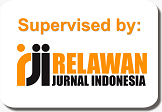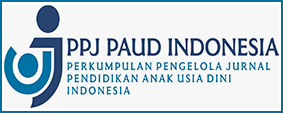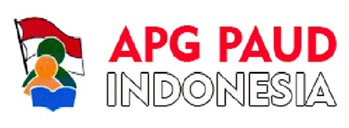PERAN KELUARGA DALAM MENDIDIK ANAK USIA DINI SELAMA PANDEMI COVID-19
Abstract
This study aims to describe early childhood education in families in a COVID-19 pandemic situation; the obstacles faced in educating early childhood in families in the COVID-19 pandemic situation; and efforts made to overcome the obstacles to educating early childhood in families in the COVID-19 pandemic situation. This type of research is descriptive qualitative. The location of this research research is in Padangbulia Village, Sukasada District, Buleleng Regency. The research subjects were parents of early childhood as informants, totaling 20 people. The data used are primary and secondary data. The technique of determining informants is purposive sampling. Data collection techniques by means of literature study and interviews. The data were then analyzed through the stages of data collection, reduction, display, and verification. This research reveals several things including: early childhood education in the family in the COVID-19 pandemic situation, including the feelings of parents when replacing the role of teachers, the readiness of parents to educate children during the COVID-19 pandemic; and the role of parents in helping children learn. The obstacles faced when educating early childhood in the family in the COVID-19 pandemic situation are children's boredom, differences in children's learning styles, learning atmosphere, learning facilities and learning comfort. Efforts made in overcoming obstacles when educating early childhood in the family in the COVID-19 pandemic situation are that parents must learn more, pay attention to children's learning habits, prepare adequate supporting facilities, and create a comfortable learning atmosphere.
References
Ihsanuddin. 2020. 9 Kebijakan Ekonomi Jokowi di Tengah Pandemi Covid-19: Penangguhan Cicilan hingga Relaksasi Pajak. Tersedia pada: https://nasional.kompas.com/read/2020/03/26/07412441/9-kebijakan-ekonomi-jokowi-di-tengah-pandemi-covid-19-penangguhan-cicilan?page=all. Diakses pada: 17 Januari 2021.
Madyawati, L. 2017. Strategi Pengembangan Bahasa pada Anak. Jakarta: Kencana.
Mahartini, K.T. 2021. Strategi Pembelajaran untuk Mengoptimalkan Perkembangan Anak Usia Dini pada Masa Adaptasi Kebiasaan Baru di Kecamatan Sukasada, Kabupaten Buleleng. Widyacarya: Jurnal Pendidikan, Agama, dan Budaya, 5 (1)
Musfiroh, T. dan Sri, T. 2015. Bermain dan Permainan Anak. Tanggerang Selatan: Universitas Terbuka.
Nugraheny, D. E. 2020. Data Kependudukan 2020: Penduduk Indonesia 268.583.01 Jiwa. Tersedia pada: https://nasional.kompas.com/read/2020/08/12/15261351/data-kependudukan-2020-penduduk-indonesia-268583016-jiwa?page=all. Diakses pada 17 Januari 2021.
Peraturan Menteri Pendidikan dan Kebudayaan Republik Indonesia Nomor 137 Tahun 2014 tentang Standar Nasional Pendidikan Anak Usia Dini. 2014. Jakarta: Menteri Pendidikan dan Kebudayaan Republik Indonesia.
Sari, D.A, dkk. 2021. Kesiapan Ibu Bermain Bersama Anak Selama Pandemi Covid-19, “Di Rumah Saja”. Jurnal Obsesi: Jurnal Pendidikan Anak Usia Dini, 5 (1).
Slavin, B.E. 2011. Psikologi Pendidikan Teori dan Praktik. Jakarta: PT Indeks.
Suyadi dan Maulidya, U. 2013. Konsep Dadar PAUD. Bandung: PT Remaja Rosdakarya Offset.
Undang-undang Republik Indonesia Nomor 20 Tahun 2003 tentang Sistem Pendidikan Nasional. 2003. Jakarta: Presiden Republik Indonesia.
Wiyani, N.A. 2016. Konsep Dasar PAUD. Yogyakarta: Gava Media

This work is licensed under a Creative Commons Attribution-ShareAlike 4.0 International License.
Authors who publish with this journal agree to the following terms:
- Authors retain copyright and grant the journal right of first publication with the work simultaneously licensed under a Creative Commons Attribution-ShareAlike 4.0 International License that allows others to share the work with an acknowledgement of the works authorship and initial publication in this journal.
- Authors are able to enter into separate, additional contractual arrangements for the non-exclusive distribution of the journals published version of the work (e.g., post it to an institutional repository or publish it in a book), with an acknowledgement of its initial publication in this journal.
- Authors are permitted and encouraged to post their work online (e.g., in institutional repositories or on their website) prior to and during the submission process, as it can lead to productive exchanges, as well as earlier and greater citation of published work (See The Effect of Open Access).











.png)








